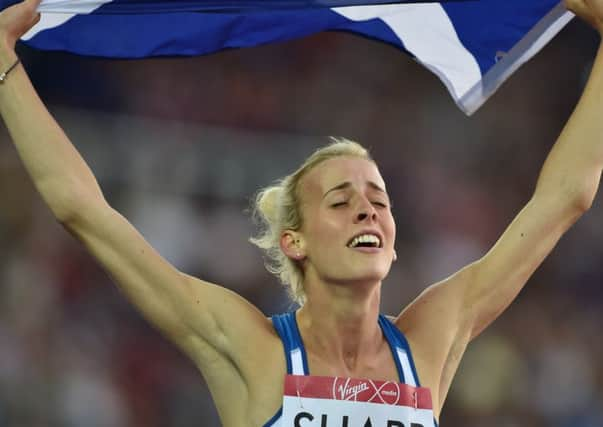Comment: Reduction in funding leaves sport as preserve of middle classes


Sport in the 2017-18 draft budget sees a fall of 7.0 per cent compared to the 2016-17. The danger of increasing rather than decreasing any inequality gap is real.
To understand this, we should look at how the funding position has changed in recent years.
Advertisement
Hide AdAdvertisement
Hide AdThe money allocated to sport within the Health and Sport budget mainly goes to the national sports agency which has the unenviable task of using resources to lever in other funds to deliver government objectives.
The 2017-18 budget for sport is a small proportion of the Health and Sport budget. The allocation of £42.4 million is a decrease of 7.0 per cent from the £45.6 million in 2016/17.
The sport and legacy allocation is down 7.6 per cent, although the physical activity allocation remains static.
Previously, additional capital spend for state-of-the-art sports facilities and a funding boost for 2014 Commonwealth Games may have delayed the onset of austerity in sporting terms.
Scottish Government funding for sport then fell between 2015 and 2016 mainly because of the removal of capital funds between the two periods. The allocation of funding in real terms fell by 36.5 per cent between 2015-16 and 2016-17 with £71.8 million allocated in 2015-16, £45.6 million in 2016-17, and £42.5 million for 2017-18.
Scottish Government capital funding for sport fell in 2016-17 compared to a high of £15.7 million in 2012-13 and the run up to the Glasgow Commonwealth Games. Revenue funding for sport fluctuated between 2011 and 2016-17, reaching a high of £33.7 million in 2015-16.
National Lottery Distribution Funding allocated to sport decreased post 2015. The total resources distributed through Sportscotland generally increased up until 2015-16 and then decreased sharply.
Against this backdrop, we can see that the positioning of sport within the Health and Sport portfolio has been both enabling and constraining.
Advertisement
Hide AdAdvertisement
Hide AdSadly the allocation of time spent discussing sports issues within the overall business of the Holyrood Parliamentary Health and Sport Committee is very poor.
Take the following examples of areas where MSPs’ knowledge about world sport could be more effective:
Gender Equality
The 2016 Equalities and Human Rights assessment of Scottish sport suggested focusing upon the following: learning, culture and attitudes, systems and monitoring, involvement and partnerships, coaching and volunteering and pathways and development, but nothing about potential legislation.
Progressive movement on gender equality will not be brought about by an additional symbolic intervention of a £300,000 per annum allocation to a gender equality fund but rather the knowledge, will and commitment to perhaps legislate for a version of Title IX, implemented in the USA and beginning to gain traction in some Canadian provinces.
The decision to leave the European Union strips away a layer of human rights protection in sport.
Cultural Relations, Influence and International Development
Scotland does not control foreign policy but it is one of the avenues open to Scotland through which it can enable influence on the world stage. Norway and Holland have long recognised the role of sport in international development.
In our sports stars, Scotland has an an army of potential cultural ambassadors. The correct training could produce diplomats and yet such possibilities and others could be lost if Scotland cannot find the space and political will to be far more politically aspirant and knowledgeable about what sport can do.
China’s current capacity to supply marathons, fun runs and the building of sports facilities for other countries outstrips demand. Australia is driving forward its second sports diplomacy strategy.
Advertisement
Hide AdAdvertisement
Hide AdAll this and much more could emerge if sport’s potential was fully understood.
Educational Attainment, Safe Children and Spaces
The place of sport and physical activity within the challenge of educational attainment should be much more centre stage. Those safe common spaces for play that have been lost could be recreated.
The daily mile is to be applauded. Daily enjoyable physical education provision should be recaptured and alternative education provision fought for, such as the Spartans Academy, or Edinburgh University’s Edu Pass programme, initiatives that widen access to education through sport in Scotland.
Excluding the Poor, Reproducing Inequality and a Missed Opportunity
The sad thing about all of this is that sport used to be a proven pathway of social mobility but reducing public funding for sport runs the risk of widening further a social class divide in Scotland where cost and access to funds means that consumption of sport becomes the preserve of the middle class.
The face of sporting governance through Scottish Governing Bodies of sport remains almost entirely white.
Extra cash for some local councils does not mean it is passed on to sport. When local authorities cut funding to sport and leisure trusts, it opens the door to private providers whose first priority is not those with the least amount of money in their pockets.
When national sports agency budgets are cut, it is not the most affluent in Scottish society who are affected. Sport used to reach into areas of multiple deprivation in ways that other areas of social policy could not, and it still has the potential to do so.
Advertisement
Hide AdAdvertisement
Hide AdThe brave and progressive thing would be to maintain levels of high funding, close the education gap amongst MSPs about world sport, introduce properly thought through legislation, and reap the social rewards as a consequence.
Grant Jarvie is Professor and Chair of Sport at University of Edinburgh, and Dominik Birnbacher is a research assistant at University of Edinburgh